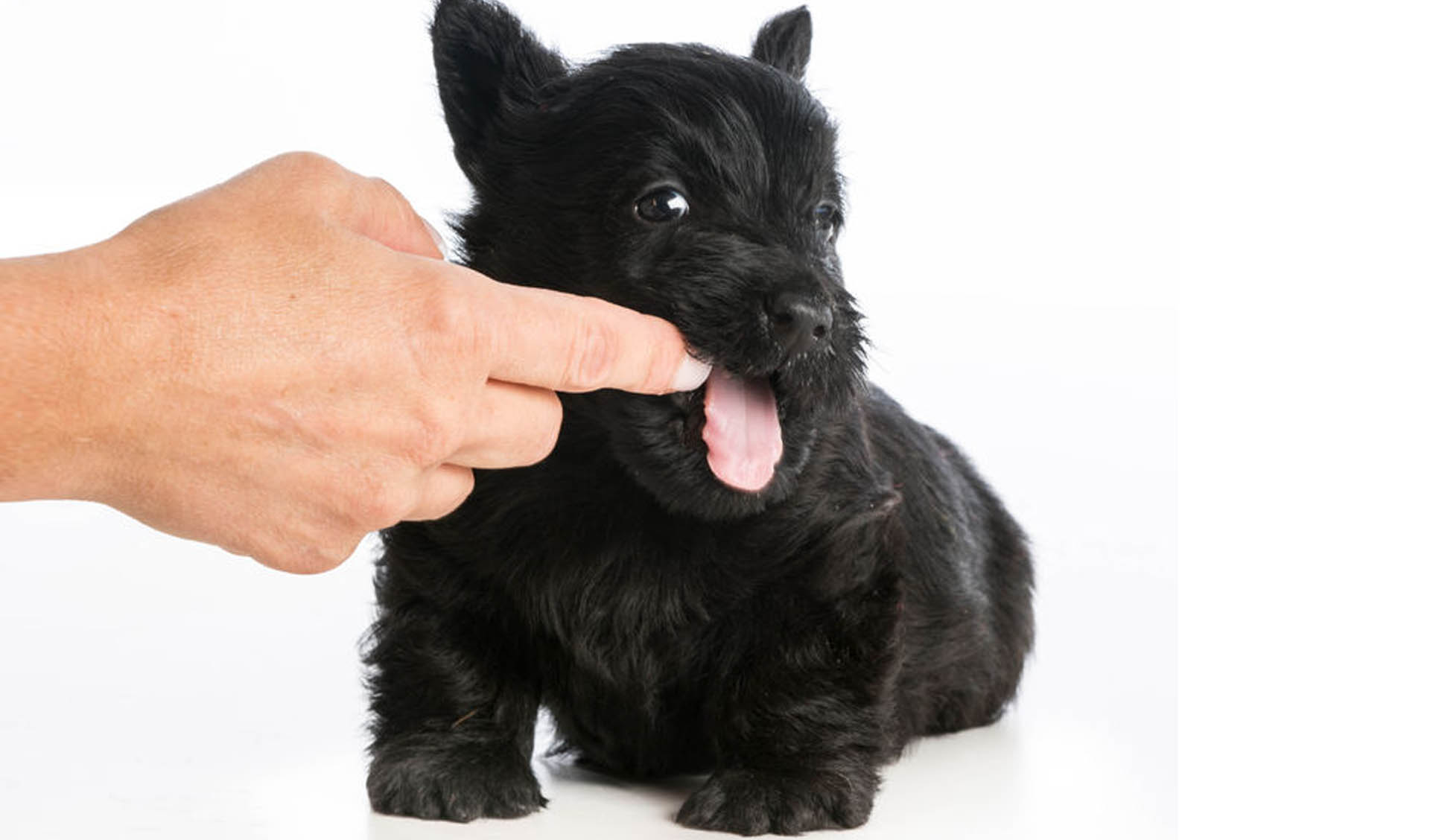Puppies bite – this is normal behaviour. In fact, it is important for puppies to experiment with biting as they grow in order to learn not to bite too hard and, eventually, learn not to bite at all. Play biting with their mother and littermates is how puppies learn to inhibit the force of their jaws. If one puppy bites too hard and another one lets out a squeal, the fun stops. If the puppy bites mom too hard, the lesson may be a bit harsher.
Puppies have very sharp baby teeth, but their jaws are under-developed, enabling pups to play-bite safely. When one puppy bites another puppy too hard, he is warned with a piercing “yelp” which instantly makes him back off. This doesn’t necessarily stop the playing, but allows the biting puppy to learn that if he continues he must do so with a softer bite. This is how puppies learn to inhibit the force of their biting before they become adults with powerful and dangerous jaws.
Puppies also need to learn to inhibit their biting with humans. Many new puppy owners are told to discourage all play biting; however, this is not good advice and can be very dangerous when your puppy becomes an adult. If pups aren’t allowed to play-bite, how will they learn to control the power of their jaws as they grow? Puppies must first be taught to bite softly, then be taught to not bite at all. You can begin this process by allowing your puppy to gently play-bite by letting him chew softly on your hand. When and if he bites down a little harder than normal let out a high pierced noise resembling a puppies “yelp”. Try your best not to pull your hand away and allow the puppy to back off on its own. Pulling your hand away will often only encourage the pup to leap towards it, thinking that you are still playing.
Once you have let out a loud “yelp” after being bit, your puppy will probably be startled and lick your hand as an appeasement gesture. Let him and then resume playing – hopefully this time his biting will be a little softer. If your puppy begins to play a little too rough and he bites you too hard, “yelp” again and leave the room for one minute. This will teach him that he needs to decrease the force of his bite in order to continue playing. Keep repeating this sequence and don’t give up! After a few days, puppy biting becomes puppy mouthing since your puppy has learned that, because your skin in so sensitive, he cannot apply any pressure while mouthing.
Once your puppy has learned what he can and cannot get away with, it is important to teach him commands such as “don’t touch”, “leave it”, or “off” to stop the mouthing altogether at your discretion. While teaching your puppy bite inhibition, it is beneficial to keep toys or ropes handy to redirect his behaviour. It is very easy for puppies to get worked up and over excited while playing and if you “yelp”, your puppy might look to redirect his biting to a rope or a toy.
A dog that knows bite inhibition is a safe dog. We encourage you to talk to the staff at Centrepointe Animal Hospital if you have any questions or concerns about your new puppy.

